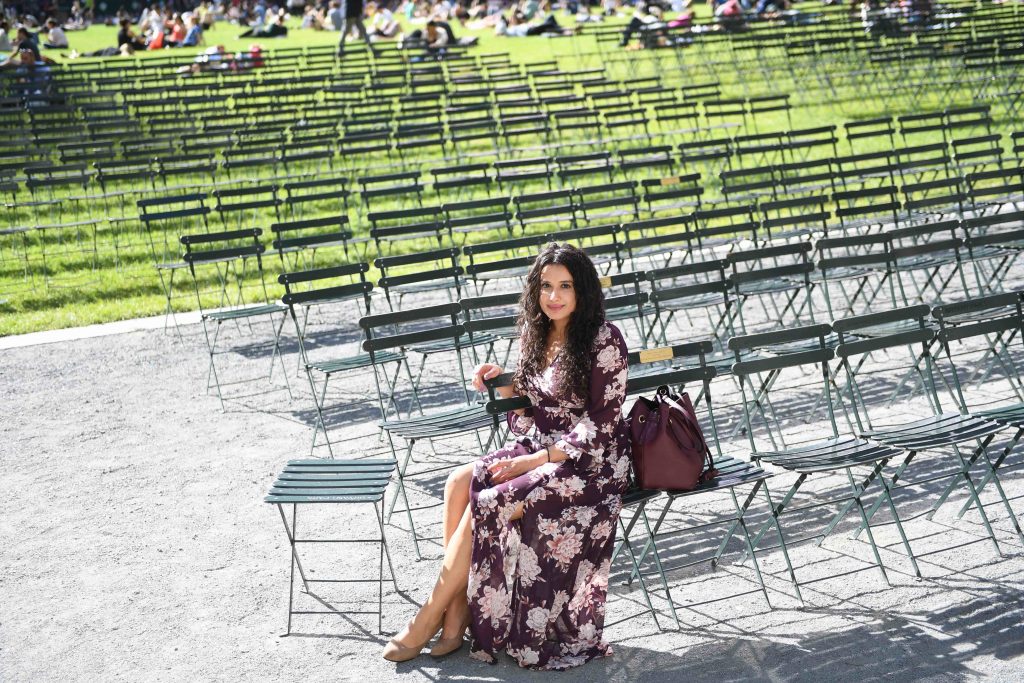Preoccupied by poetry and impassioned by the written word, Tala Abu Rahmeh’s work has been published across several anthologies including Naomi Shihab Nye’s Time You Let Me In: 25 Poets under 25 and her poem, Cape Cod was recently nominated for a Pushcart Prize. Reflecting upon a summer shrouded in sadness, Rahmeh revisits the life changing moment, when she lost her mother.
It feels like yesterday, her last night, her limbs turning purple, her stomach bloated from the aftermath of over 20 sessions of useless chemotherapy. My mother, the tender small woman, was dying from ovarian cancer.
My mother died on a soft August evening, a couple of hours after the sunset of Jerusalem cooled the earth down, and as desert breeze settled in, my mother took her last breath, after battling cancer for two years. She fought so hard, pretended that the betrayal of her once powerful body was not painful. Her cancer started in the womb, the home my brother and I were once in, growing limbs for 9 months, becoming human, and feeling her love growing inside of us. Maybe that was why we all denied the inevitability of her death, because somehow, we were culprits in her demise.
She was a fighter, my mother. After years of abuse, she packed our bags and took my brother and I away from my father, and started her own business in Palestine, out of all broken places. She taught me to always be kind, to not exaggerate, to be content with what I have, and most importantly, to never give up on the idea that life is supposed to be an experience of joy and optimism, and should carry in its folds a love of all beings, and a respect of all experiences. My mother, the Palestinian girl from a village near Ramallah, refused to be a victim, and drew for herself a life that was filled with little gestures of love, and an infinite desire to give a piece of it to whoever she encountered. My mother was not perfect, but in the 24 years I knew her, she made me feel like the most important person in the world, and the most loved.
Death is not what you expect it to be. It looks quiet, not fussy or grandiose, just calm and slow. I was the last person in the room with her, and I told her to let go, from a place within me that I didn’t think existed. For the first time of my life, I told my mother to choose herself, because in her death there was freedom from pain and suffering. I was trying to make up for my selfishness during her illness, my desire to keep her alive, even a sliver of her, because being in the world without her seemed unbearable.
I spent the weeks after her death in a daze, surrounded by friends and family in my mother’s house in Ramallah, not eating or sleeping, just tracing my breath that was slow and laborious, and dreaming of escaping back to Washington, DC, where I lived and was attending graduate school. Eventually, I boarded the plane back, away from the chaos of death and its dreary aftermath.
My mother’s loss hit me in parts, sometimes all of sudden, and other times it crept in like a horrible dream I was not prepared to carry on my bony shoulders. I was hungry for my mother, for her words and her presence, for her ability to make sense of the cruel corners of the world, but there was no way for me to have her back. The space past survival is the small house your body lives in as you still process the impact of your life falling apart, but you cannot live in that house, you must find a home elsewhere, as lonely as that road is, because sadness is comfortable, but staying inside of it erases every single shred of who you are.
Somehow, I got out, and right now I’m searching for my home without my mother, but she continues to live within me. I look at myself in the mirror sometimes and I see her, and I dream of her beautiful heartful laugh, her limitless sense of wonder, so I touch my chest and hope for myself to grow into the warrior she was, become the mother she was. I will never heal from the impact of her death, and the rest of my life I have to live without her, but maybe there is something to be said about true love, and how somehow it endures everything, even death.
Now my summers are in New York City, along its beaches and on the skin of its sweaty streets. It smells like urine and old garbage, but it gives me hope and light. Some mornings I can’t believe my luck, how I ended up here, in the heart of a city that understand loss, but continues to rise above it, and dream of breezy summers that fill your lungs with sun, but don’t hurt your stomach.




